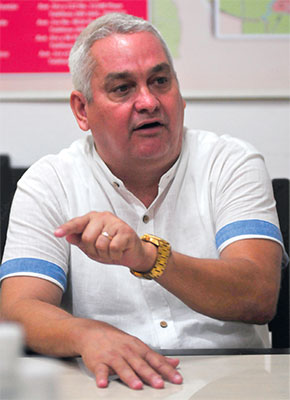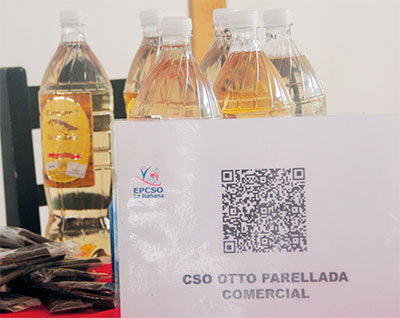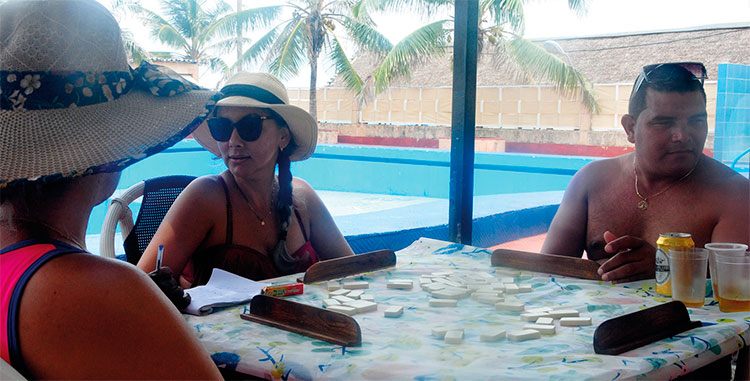Every time my work center celebrated an anniversary, the first idea was to go to a workers’ club (Círculos Sociales Obreros, CSOs) to celebrate, but nostalgia for all that hit me as I toured the main areas of the Armando Mestre, José Luis Tassende and Otto Parellada CSOs in Havana last week.

I was also more than dismayed to see what remains of the CSOs of Braulio Coroneaux, José Ramón Rodríguez, and Julio Antonio Mella, to name just three of those splendid institutions, many of which today are, to say the least, neglected and abandoned..
Until the revolutionary triumph of 1959, they had such pompous names as Havana Yacht Club, Casino Español, Club Náutico, Miramar Yacht Club, or Vedado Tennis Club, among others, and constituted exclusive private emporiums for the recreation and leisure of the wealthy classes, in which the workers could not even participate..
From then on, under different organizational modalities -always under the aegis of the trade union movement-, the clubs rose to prominence and became the ideal scenario for recognition, celebration, recreation and the development of a wide range of trade union and labor activities. Each worker could feel that he or she was the owner of these spaces.
Of course, not everything was rosy, since, among other things, the idea of transferring two of these centers, José Ramón Rodríguez and Julio Antonio Mella, to the foreign investment network and using the dividends to support the others with resources was gaining strength. At the moment, due to the difficult state of construction of both, the intention seems to have been discarded.
Times and circumstances have changed. There are only a few clubs left, the many services that used to be offered there are dwindling, and what is worse, the number of visitors to the facilities that Fidel put in the hands of the workers in 1960 is declining dangerously.
Today’s Reality

Néstor Ruiz García is the general director of the Empresa de Círculos Sociales Obreros, which is part of the Grupo Empresarial del Comercio Interior de La Habana, which is part of the government of the capital.
«In November 2013, the company took on 10 CSOs. Today, there are only seven, a university spa and two local development projects,» he says.
The manager informed us that, according to the financial schemes applied, these institutions do not have a bank account. Everything they receive,» he said, «goes into the company’s single account, which covers the expenses.
«We buy all the products centrally and distribute them to the clubs. The government supports us with some funds, which helps us reduce prices, and although they are not as high as they used to be, they are not the same as those that prevail in the retail trade. «For example, a portion of congrí costs 20 pesos and 50 pesos for bottled beer (Cristal or Bucanero). The problem is with chicken, pork, fish and other meat products, since we have to buy them from non-state companies or companies that are tied to these forms of management, which tends to increase costs. The subsidy that used to be guaranteed by the government in Havana no longer exists».
Elsa Guerra, assistant director of the company, explained that the commitment is usually that each person, with his or her invitation, is entitled to a group of products, including the so-called main course, «but that together they do not exceed 600 pesos. From that point on, everyone consumes according to their personal economy».
Betting on turning every CSO into a Unidad Empresarial de Base (UEB)
Undoubtedly, the organizational scheme in CSOs conspires against economic efficiency, which translates into low salaries and, therefore, the exodus of many of their workers to sectors where they seek better opportunities.
The sense of belonging and the constructive maintenance of the facilities are also eroded, despite the efforts of their diminished collectives.
I ask the managers if they have evaluated other ways of obtaining products and improving their management. «We have been in the process of improvement for a year,» says Ruiz García, «although the other entities of the Business Group started it a little more than four years ago. Once this step is taken, the Clubs will become a UEB and will be independent, with their own bank account for income and expenses, managing what they need and being able to carry out initiatives that they cannot do today.

Just a few years ago, it was difficult to find an empty table at any time of the day at the Armando Mestre, the old Ferretero. Workers would arrive after eleven in the morning, and only two tables would be occupied in the wide plaza, while a few swimmers enjoyed the swimming pool.
At José Luis Tassende, workers of the Granma polygraphic center celebrated their day at the well-known ranchón. The rest of the areas remained inactive.
The largest number of people enjoying the summer were found in the different areas and on the beach of Otto Parellada, where I received, among others, the grateful opinion of Geisel Kube, doctor of the Hermanos Ameijeiras Hospital, and her relatives: «The treatment was very good».

In all three locations, managers and union representatives explained that invitations are distributed for up to 120 visitors each day, with more on weekends. «If at 1:00 p.m. that quota is not filled, then all people can have access.
Aspects that Need Urgent Improvement
- In the past, workers could join their local club. Today, there is no such affiliation, so attendance is low. Workers do not feel ownership.
- CSOs are only 48% staffed, which is detrimental to the services they provide.
- They make virtually no financial profit, hence the difficulty in raising low wages. In addition, as they failed to meet their income plans last year, they were unable to stimulate the wages of their direct workers.
- There is little information about what CSOs offer, to the point that many believe they are closed.
- Let each club manage its financial activities.
- Loss of dominance of the trade union movement in the activity and management of the institutions.
Given the complex conditions that the national economy is going through, it is practically impossible to save in its entirety the work that has characterized these centers for many years. However, a question haunts me: Will the workers of the capital be able to feel that they are the owners of theworkers’ clubs again?


